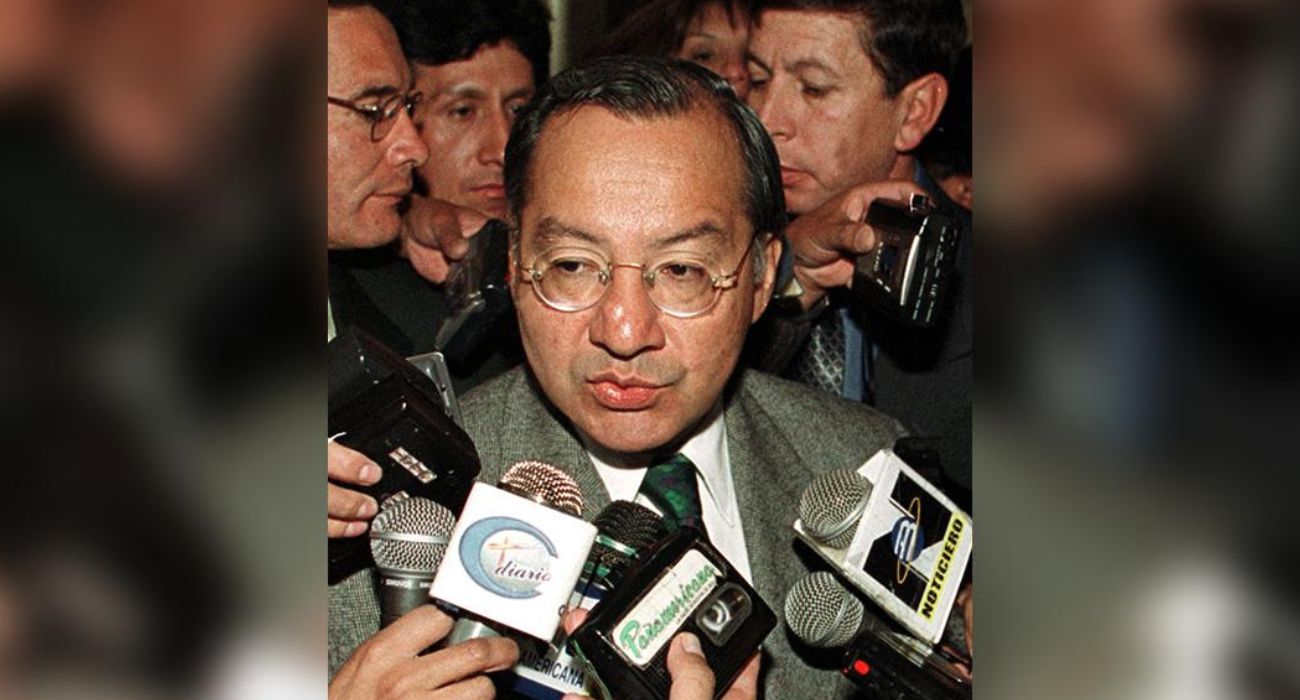A former U.S. ambassador with a decades-long diplomatic career has been charged with being a secret agent for Cuba after a lengthy FBI counterintelligence investigation.
Victor Manuel Rocha, 73, of Miami, Florida, was arrested Friday. Rocha started working in the State Department in 1981 and rose through the ranks to hold various offices, including a role as “Director of Inter-American Affairs on the U.S. National Security Council, with special responsibility for, among other things, Cuba,” the Department of Justice said in a press release on December 4. Rocha became a U.S. ambassador to Bolivia in 2000, serving in the post until 2002.
After leaving the State Department, Rocha became an advisor to the military commander of the U.S. Southern Command, whose area of responsibility included Cuba.
“This action exposes one of the highest-reaching and longest-lasting infiltrations of the United States government by a foreign agent,” said Attorney General Merrick B. Garland, per the press release. “We allege that for over 40 years, Victor Manuel Rocha served as an agent of the Cuban government and sought out and obtained positions within the United States government that would provide him with access to non-public information and the ability to affect U.S. foreign policy.”
According to a criminal complaint that was unsealed on Monday, FBI investigators, through undercover sting operations conducted over the last couple of years, were able to get Rocha to detail how and why he betrayed the confidences of the United States.
“For me, what has been done, has strengthened the Revolution. It has strengthened it immensely. … We can’t put — put that in danger. … I’m very zealous in regards to what we have done and with what I have to protect, and what we have done,” Rocha said in a meeting with an undercover FBI agent.
According to the court filing, the FBI was tipped off around November of 2022 that Rocha was a covert agent. Upon learning this, the FBI began investigating, setting up a sting operation by having someone pose as an agent of Cuba’s intelligence service.
The court document describes the cloak-and-dagger lengths that Rocha employed to avoid detection. In one instance, Rocha called out the undercover agent who had used the word “Havana,” the capital city of Cuba, when they first established contact, calling it a security risk.
“[W]e have another name. We never utilize Havana. … I tend to say ‘The Island.’ … I never use C or H. … [T]hat was the only thing that … I thought, if someone has betrayed and told the enemy’s counterintelligence … why are they utilizing … Havana?” Rocha allegedly said.
After he retired from the State Department, Rocha entered the private sector as president of a gold mine in the Dominican Republic. The mine was reportedly owned by Barrick Gold based in Canada, according to the Associated Press.
Rocha also held senior positions with a coal exporting company, a cannabis industry firm, the law firm Foley & Lardner, and the public relations firm Llorente & Cuenca.
According to the filing, Rocha told the undercover agent that Cuban intelligence instructed him to invent a cover story, so he pretended to be “a right-wing person.”
Peter Strzok, a former FBI agent fired for political bias, noted in a series of posts on X that part of the complaint suggested that the cover could have been used to gain access to former President Donald Trump.
“Rocha told the UC that ‘since the Dirección asked me … to lead a normal life … I have — have created the legend of a right-wing person.’ Good thing no intel service would ever think of using that legend to get someone onto the Mar-a-Lago grounds,” Strzok posted.
The Dallas Express reached out to the FBI to find out how someone could clandestinely serve Cuba while occupying such high-level positions without being detected by the FBI for decades. This article will be updated with a response if or when it is received.






